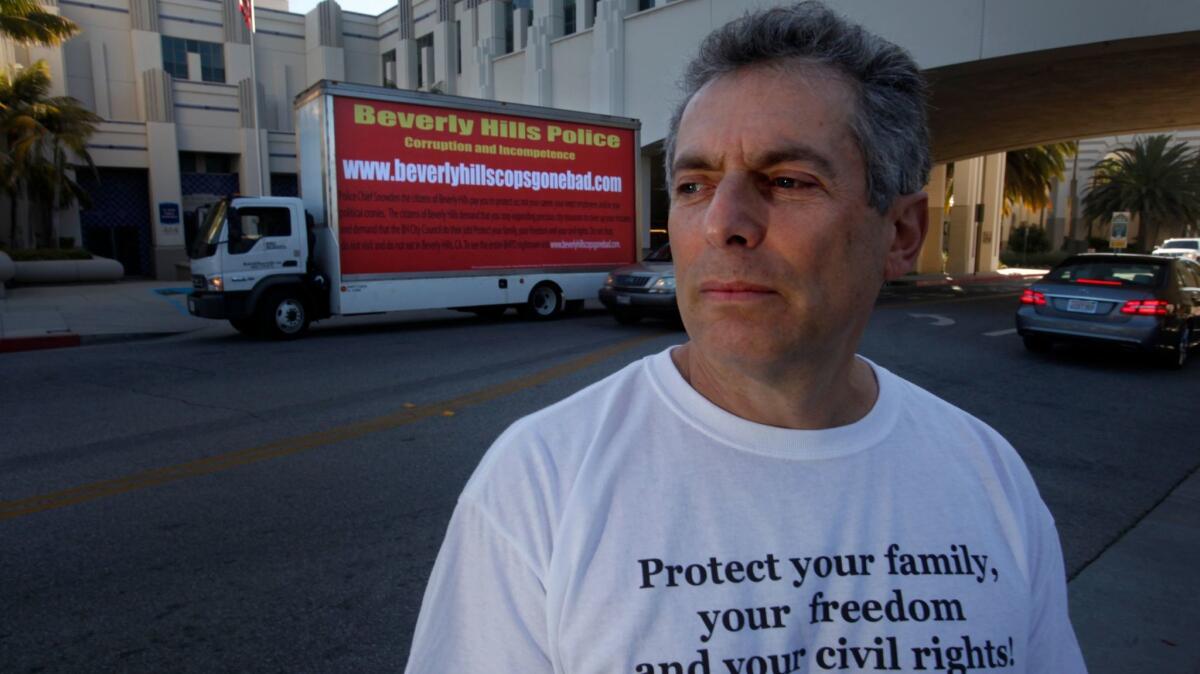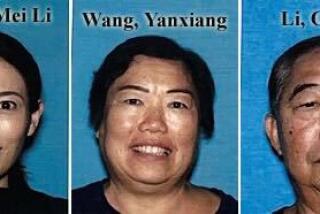Beverly Hills man suspected in wife’s death again loses bid to sue police

A Beverly Hills man who was investigated but not charged in his wife’s death failed Friday to reinstate a lawsuit against the police for allegedly concocting false evidence.
Gary Klein, whose wife, Rina Pakula Klein, 41, died in 2009, charged in a lawsuit that a former homicide investigator for the Beverly Hills police told judges lies to obtain three search warrants for his home.
A district judge ruled in favor of the police, and Klein appealed to the U.S. 9th Circuit Court of Appeals.
A three-judge 9th Circuit panel upheld the lower court’s decision, finding that Klein failed to show that former Det. Daniel Chilson “made deliberately or recklessly false statements, and that, but for his dishonesty, the warrants would not have been issued.”
“Many of Detective Chilson’s statements were not deliberately or recklessly false,” the panel said.
For example, the court said, Chilson correctly stated in an affidavit that Klein had opposed an autopsy of his wife’s body.
Klein, a member of the Orthodox Jewish faith, said he resisted an autopsy until consulting with a rabbi and then agreed to a limited examination.
Klein had seizures in her kitchen during a visit with another woman and later died at a hospital. She had suffered from lupus and was taking several kinds of prescription medications, but had appeared in good health just days earlier.
A friend of Rina’s family went to the Beverly Hills Police Department to express suspicions over her death, spurring an investigation that lasted years.
Court records showed that her family suspected Klein killed her. They told police that Rina was unhappy in her marriage and that Klein had told her he could kill her and get away with it.
Police interviewed Klein’s children at school, the parents of his children’s friends, his neighbors and his relatives. Rina Klein’s body was exhumed for a more complete autopsy, and the police hired an outside laboratory to investigate.
The cause of her death has been listed as undetermined, and court records show police eventually ended their investigation into the possibility that Rina had been poisoned.
They charged Klein instead with a felony count of hacking into an in-law’s computer.
The affidavits Chilson wrote to obtain the search warrants contained “ample” evidence “apart from any purported misrepresentations,” the 9th Circuit said.
The court said the evidence included the following: that Klein’s wife was seeking a divorce, her alleged comments three weeks before her death that Klein claimed he could “get rid of her,” his anger over the prospect of a full autopsy, a call he made to a probate lawyer less than 24 hours after her death and “forged signatures” on codicils to his wife’s will.
Klein disputed those assertions.
Klein blamed his former in-laws for the investigation and said he sued the police to show his three sons he had nothing to do with his wife’s death.
In a telephone interview from London, where he was traveling Friday with his sons, Klein said he would ask a larger panel of the 9th Circuit to review the decision.
“I want the Beverly Hills police to say they made a mistake,” he said.
Twitter: @mauradolan
ALSO
High-speed rail backers lose another round in court
California’s bullet train is likely to face more environmental hurdles after a high court ruling
California Supreme Court: Medical board can examine prescription records
More to Read
Start your day right
Sign up for Essential California for news, features and recommendations from the L.A. Times and beyond in your inbox six days a week.
You may occasionally receive promotional content from the Los Angeles Times.







